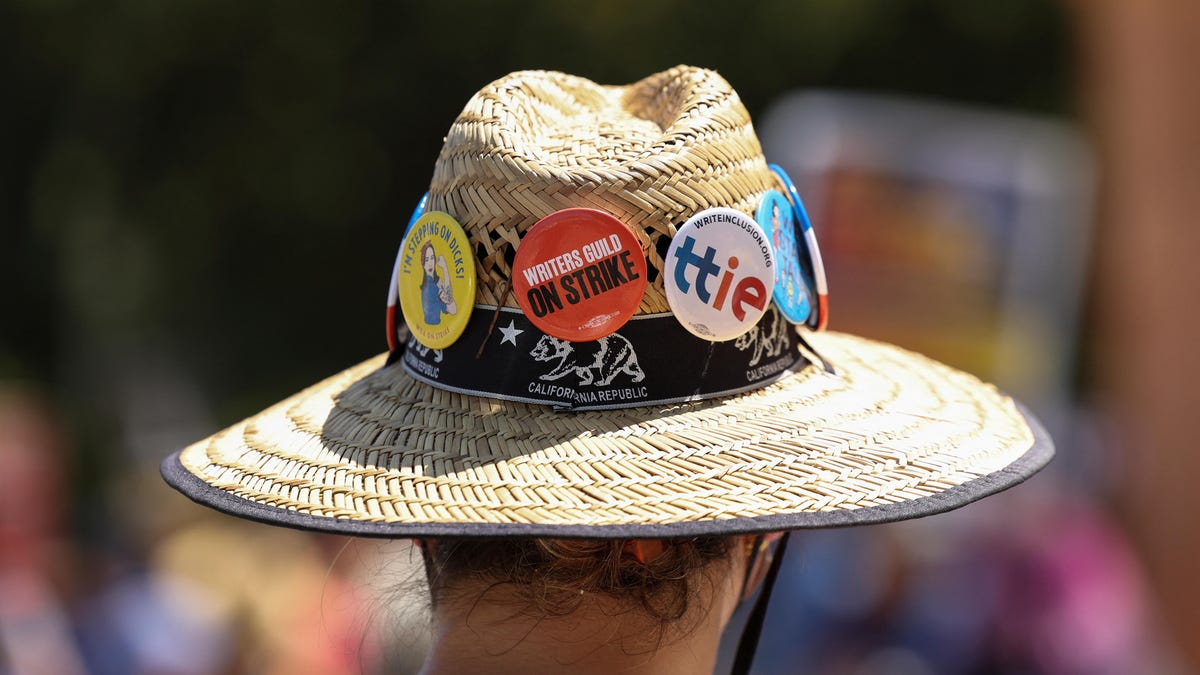The Future of Organized Labor in a Warming World
After the scorching summer of 2023, which broke temperature records, the challenges faced by laborers have become even more pressing. While seasonal changes bring some relief to workers exposed to the elements, the larger question remains: What does the future hold for organized labor in the face of ongoing climate change?
The impacts of global warming are rapidly evolving, and this summer’s wave of strikes provides some insights into how the labor movement must adapt. Notably, the United Auto Workers’ demand for inclusion in EV battery plants sends a powerful message from a key industry in the energy transition. While Detroit’s Big Three automakers warn that union obligations could slow down the shift to electric vehicles, President Joe Biden’s support for green, well-paying union jobs shows that the final chapter on labor’s role in the climate movement has yet to be written.
The Heat is On
Climate change presents new challenges for workers trying to organize against their employers. For example, Hollywood studio executives were recently fined for deliberately removing shade trees that provided relief to striking writers and actors in triple-digit temperatures. Additionally, the strike by workers in Los Angeles was interrupted by Hurricane Hillary’s arrival, forcing them to temporarily halt their picketing.
However, the summer of strikes also saw significant victories catalyzed by climate change. Extreme heat, which poses risks to workplaces without proper climate control, led to spontaneous walk-outs in various industries, including construction, hospitality, and logistics. In response, UPS delivery drivers secured guarantees for air conditioning and cab fans in their hot trucks, preventing the largest strike in US history. At Amazon, a relentless heatwave fueled the first-ever unionization of the company’s delivery contractors, leading to a nationwide strike in June.
While federal and state regulations on heat stress in the workplace are still in development, workers are turning to collective bargaining to secure protections. Companies are also feeling the effects of climate change, with reduced productivity due to heat, increased air-conditioning costs, and the threat of stronger storms. These challenges create opportunities for labor to negotiate for better working conditions.
The Balancing Act
Demands for improved labor practices amidst climate change often clash with the urgency for rapid climate action. In California, firefighters seeking better wages for preventative fire management faced criticism for potentially slowing down crucial brush-clearing efforts. The state’s reliance on prison labor for firefighting further complicates the situation. Finding the right balance between labor rights and climate action is a delicate task.
However, climate change can also provide American workers with increased leverage. For instance, during tense negotiations between dockworkers and West Coast port terminals, a drought affecting the Panama Canal made it difficult for suppliers to reroute shipping traffic. This highlighted the mutual dependence between workers and the ports, emphasizing the need for collaboration.
Beyond Infrastructure
The impacts of climate change stretch beyond infrastructure and logistics. American farmworkers will become even more critical as the planet continues to heat up. Globalized food markets have provided some relief for the agricultural labor force, but recent disruptions have caused a notable increase in American food prices. As producer nations turn to food nationalism, the US will need to rely more on its own farm workers.
Labor disputes are an inevitable consequence of deepening climate change, and their resolution will shape the energy transition and other crucial aspects of the response. Will electric vehicles from union manufacturers surpass the dominance of Tesla? Will delivery workers have adequate protections from extreme heat while efficiently meeting delivery deadlines? How will nations navigate worsening climate conditions and their impact on trade? These are the pressing questions posed by climate change, and their answers depend on how employers, governments, and the labor movement adapt to a warming planet.
Adam Met, the executive director of the climate research and advocacy nonprofit Planet Reimagined, holds a PhD in human rights and sustainable development. He also happens to play bass in the multi-Platinum band AJR. Ben Dahan, Planet Reimagined’s fellowships and partnerships advisor, contributed to this article.
Related Content:
🔥 Burning Man’s Wealthy Attendees Receive a Wake-Up Call
💡 Thinking Creatively about Climate Incentives
🧑🏫 UC Berkeley Launches Course on Managing Unionized Workplaces in Business School
Denial of responsibility! Vigour Times is an automatic aggregator of Global media. In each content, the hyperlink to the primary source is specified. All trademarks belong to their rightful owners, and all materials to their authors. For any complaint, please reach us at – [email protected]. We will take necessary action within 24 hours.


